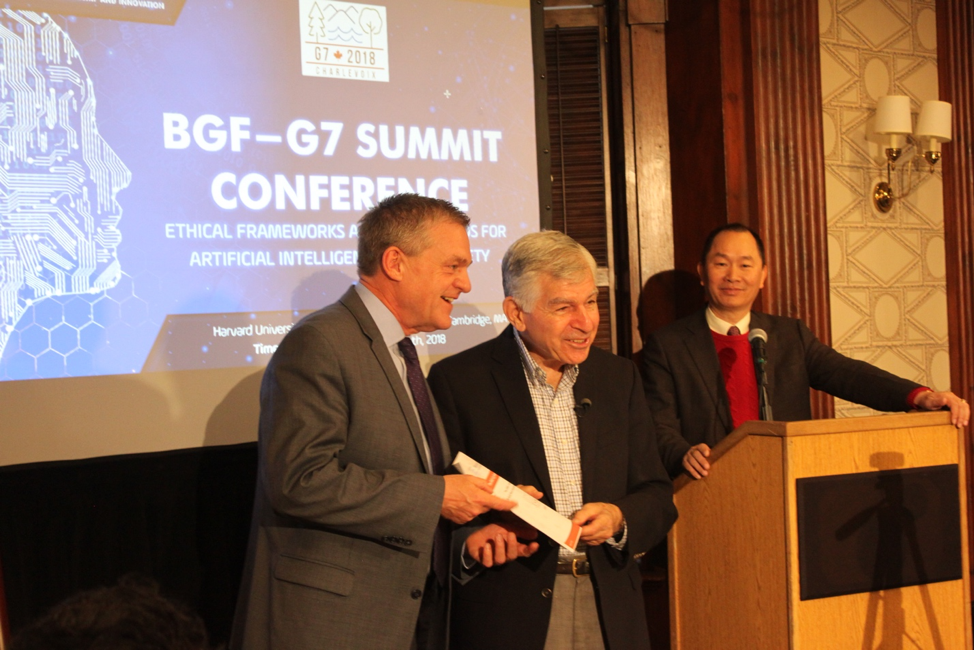
by Editor | Jun 27, 2021 | Statements, News
The leaders of the G7 met in Cornwall on 11-13 June 2021, released statements and releases, some about the digital sphere and AI. Here are some notes:
We call on the private sector to join us in our efforts and reaffirm our support for industry-led inclusive multi-stakeholder approaches to standard setting, in line with our values and principles which underpin these standards. As such, we welcome the Presidency’s initiative of a ‘Future Tech Forum’ in September 2021 with the support of the OECD. The Forum will convene like-minded democratic partners to discuss the role of technology in supporting open societies and tackling global challenges.
We support the aim to facilitate dialogue between governments, industry, academia, civil society and other key stakeholders. As such we will continue to take bold action to build more transparency in our technologies, building on the Open Government Partnership. Building on the work of the Global Partnership for Artificial Intelligence (GPAI), we will aim to rally all partners around our open and human centric approach to artificial intelligence looking forward to the GPAI Summit in Paris in November 2021. To support effective standard-setting that reflects our core values and principles, we will strengthen our coordination, including by consulting with industry, with regards to engagement with and appointments to Standard Developing Organisations, where appropriate. We commit to better sharing of information and best practice, including between our national standards bodies, enhanced capacity building and support for multi-stakeholder participation in standard-setting. To this end, we endorse the Framework for G7 Collaboration on Digital Technical Standards.
On September 7-9, 2021, Boston Global Forum and Club de Madrid will co-organize the Policy Lab “Fundamental Rights in AI & Digital Societies: Towards an International Accord”, in which participants will contribute initiatives and action plans for leaders and governments of G7 and for GPAI Summit.
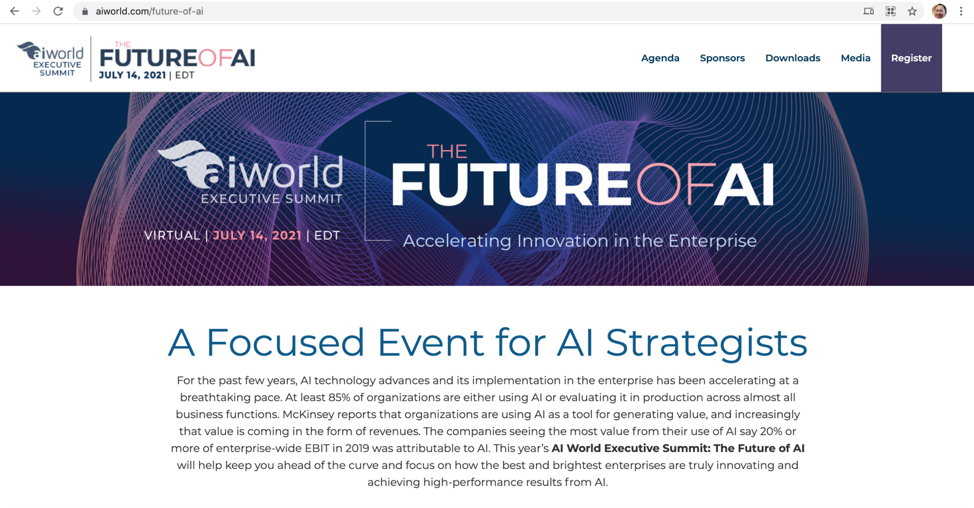
by Editor | Jun 27, 2021 | Event Updates
July 14, 2021, 2:40 PM – 3:15 PM EDT
EXECUTIVE ROUNDTABLE: Vision for the AI Age through 2045
Our distinguished panel and co-authors will debate and present a vision of an all-digital virtual city based on trusted open data. This presentation will summarize the standards and research developed by these experts and delivered in a series of reports to the United Nations on behalf of the AI World Society of the Boston Global Forum. The series of reports have been published and presented to the U.N. in the last year and half, and includes specific plans covering:
Social Contract for the AI Age
- People Centered Economy
- Trustworthy Economy
- Intellectual Society, a Thoughtful Civil Society, and
- AI Government
- AIWS City
- Thomas Patterson, PhD, Research Director, The Michael Dukakis Institute for Leadership and Innovation; Professor of Government and the Press, Harvard Kennedy School; President, AIWS University
- Panelists:
- Vint Cerf, Father of the Internet, Chief Internet Evangelist, Google
-
- Michael Dukakis, Governor; Co-Founder and Chair, AI World Society (AIWS); Boston Global Forum
-
- Ramu Damodaran, Chief, United Nations Academic Impact, United Nations; Editor in Chief, United Nations Chronicle Magazine
AI World Executive Summit focus on AI Strategists
For the past few years, AI technology advances and its implementation in the enterprise has been accelerating at a breathtaking pace. At least 85% of organizations are either using AI or evaluating it in production across almost all business functions. McKinsey reports that organizations are using AI as a tool for generating value, and increasingly that value is coming in the form of revenues. The companies seeing the most value from their use of AI say 20% or more of enterprise-wide EBIT in 2019 was attributable to AI. This year’s AI World Executive Summit: The Future of AI will help keep you ahead of the curve and focus on how the best and brightest enterprises are truly innovating and achieving high-performance results from AI.
Link:
https://aiworld.com/future-of-ai
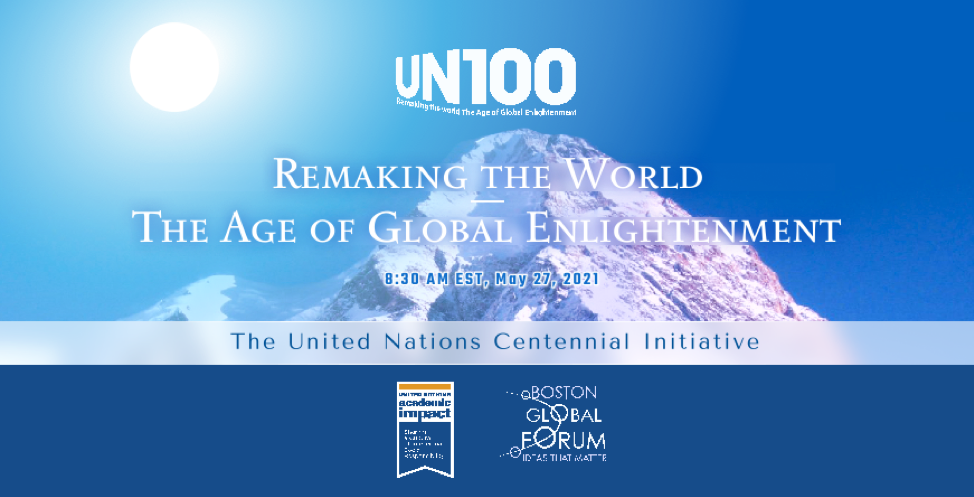
by Editor | Jun 27, 2021 | News
Nazli Choucri, Professor of Political Science (MIT) and co-author of Social Contract for the AI Age, contributes to the book Remaking the world – The Age of Global Enlightenment.
She wrote about the Framework for AI International Accord; some notes are here below:
Consistent with the principles the provisions of the Budapest Convention on Cybercrime as well as the EU General Directives, and respecting the Social Contract for the AI Age, the AIIA draft framework is conceived and designed as: 10
- A multi-stakeholder, consensus-based international agreement to establish common policy and practice in development, use, implementation and applications of AI
- Anchored in the balance of influence and responsibility among governments, businesses, civil society, individuals, and other entities.
- Respectful of national authority and international commitments and requires assurances of rights and responsibilities for all participants and decision-entities.
To consolidate the design into a formal International Accord, it is essential to:
- Review legal frameworks for AI at various levels of aggregation to identify elements essential for an international AI legal framework.
- Recognize methods to prevent abuses by governments and businesses in uses of AI, Data, Digital Technology, and Cyberspace (including attacks on companies, organizations, and individuals, and other venues of the Internet)
- Consolidate working norms to manage all aspects of AI innovations, and
- Construct and enable response-systems for violations of rights and responsibilities associated with the development, design, applications, or implementation of AI



by Editor | Jun 27, 2021 | Publications
Ramu Damodaran, Chief of the United Nations Academic Impact
New York, May 26, 2021
I must have been in the eighth grade when our high school teacher, Father Pat Rebeiro, introduced us to the distinction between culture and civilization which the French author Amaury de Riencourt had put forward some years earlier, in which he expanded upon the idea put forward by Oswald Spengler earlier in The Decline of the West that, as Ben Espen has paraphrased it, “civilization is the “late” phase in a society’s life. It follows the period of “Culture,” when society creates its characteristic science, religion, art, and politics. “Espen goes on to suggest that “culture is pioneering, aesthetic, and fertile. Civilization is sterile, extensive, practical, and ethical.”
Riencourt wrote in the 1950s, shortly before Sputnik bridged our inner and outer worlds, and before the extraordinary demonstrations of a world resurgent, a world “pioneering, aesthetic and fertile” demonstrated the futility of demarcating cultures and civilizations by national or continental boundaries. Migration, the ease of collaborative research beyond the physical proximity of the researchers, and the unexpected fertility of foreign lands to greatnesses once thought indigenous to a specific national home, have allowed us a world whose civilizational moulding and moorings constantly yield a chorus, a confluence, and, indeed, a co-mingling, of cultures. Where, in this excitement and effervescence, does artificial intelligence (AI) fit in?
A good point to begin that reflection is the assertion by Governor Michael Dukakis of the character of AI, the absence of its applicability to the “too many judgments you have to make in this world that involve values, ethics and morality.” As bedrock principles, these would appear civilizational in character, the enduring geology which cultures infused but never supplanted, cultures which by the very being of their energy and spontaneity could well ignore, go beyond, reinvent —-or, yes, conform to —- values, ethics and morality. Speaking in Ho Chi Minh city (HCMH) two years ago, Ousmane Dione, World Bank Country Director for Vietnam, noted that while “ AI mimics how the brain works “, there were three key factors to measure the possibilities of its successful use in that historic city ; “setting clear and realistic expectations for where and how AI can deliver for HCMC, ensuring that there is an enabling environment for AI to succeed in practice, especially when it comes to accessing and integrating the data needed to solve the city’s challenges and, finally, making sure that we understand and manage any key risks associated with AI.”
Within the cultural space, the most self-evident area of risk posed by AI is, as Baptiste Caramiaux has written, in the challenge by “AI-generated content to authorship, ownership and copyright infringement. New exclusive rights on datasets must be designed in order to better incentivise innovation and research.” That said, as he continues, “AI challenges the creative value-chain in two ways: shifting services performed by humans to algorithms and empowering the individual creator.” It is that empowerment that will, in my view, remain one of the two greatest possibilities for AI to enhance the individual, as much as global, cultural experience.
In 2016, Microsoft, with academic and corporate partners, launched the “Next Rembrandt” project which “imprinted the AI “with 346 of Rembrandt’s known works in the hopes that it could create a unique 3D printed image in his style. An algorithm measured the distances between the facial features in Rembrandt’s paintings and calculated them based on percentages. Next, the features were transformed, rotated, and scaled, then accurately placed within the frame of the face. Finally, we rendered the light based on gathered data in order to cast authentic shadows on each feature.” The cumulative result was a product that could well have been the final work by the storied artist of the Renaissance.
Using that illustration as metaphor, one can foresee the power and possibilities in AI to create cultural experiences beyond ready human capacity, through its innate strengths of recognition, selection and assimilation, experiences that can extend to the creative and performing arts, the auditory aspiration of recreated music (think of Beethoven’s nine symphonies being fashioned into his unwritten tenth; we have a precursor already in the 2019 venture in Linz, where a performance of Mahler’s unfinished tenth symphony was followed by a six minute software composition in his style ), or a syncretic architectural fantasy that echoes Egyptian pyramids as evocatively as it does the Angkor Wat in Cambodia. Here AI is an enhancer of, and not a threat to, human enjoyment.
Corollary to this is the expansion the judicious use of AI will afford the culturally creative individual; even if its mimicking of the human brain will not allow it to become the brain itself, and happily not, it can through that process of inference and imitation address many of the more mundane aspects of the creativity while also suggesting options and possibilities for the original human brain to explore.
The cofounding by Governor Michael Dukakis and Nguyen Anh Tuan of the Boston Global Forum (BGF) of the “Artificial Intelligence World Society” (AIWS) launched “a project that aims to bring scientists, academics, government officials and industry leaders together to keep AI a benign force serving humanity’s best interests.” The idea of an AIWS would strike a particular chord for the United Nations which had looked at the idea of a “world society” in its very first years with UNESCO’s encouragement of “teaching about the United Nations and its specialized agencies since, together, these form the greatest contemporary effort, on an international, governmental scale, to move towards a world society. A booklet including some suggestions for teaching programs on the United Nations in the schools of Member States…was considered…at the UNESCO seminar at Adelphi College, New York.”
“World society” is an elegant phrase that has not acquired the reiteration it deserves; I was reminded of it when reading an article by Robert A. Scott, President Emeritus of Adelphi, where he writes “One of the most important goals of education is to learn how to reflect, how to learn from our experiences. An early experience that has stayed with me was finding small wooden signs along the paths of the camp I attended when nine years old. The signs were about three inches by seven inches and had the word “Others” carved into the wood. They were intended to inspire those walking the paths to be considerate of others, welcome others, and listen to others, no matter what their station in life. Others. Respect others. Listen to others, no matter what their station. Reflect on what they say. It may help solve a problem you never thought about.”
Those last four words point to the second possibility I sense in the power of AI to enhance the individual, to allow her the possibility to summon experiences untested and untasted from the moorings of the felt and familiar, to find in the ‘others’ that Bob Scott mentioned, ourselves. Much as the often irritating pop up advertisements that promise “if you like that you will love this”, AI can, with the voluntary consent of the online seeker, bring to the proximity of her desk or lap beauties unexplored with a confidence in their appeal that only objective algorithmical analysis can assure. And making distant cultures proximate, seeing their evanescent echoes in one’s own, is the essence of a world society.
The truth that such a society ought to be both a physical and a spiritual concept is reflected in what BGF describes as a “sophisticated pioneer model: a combination of the virtual, digital AIWS City and a real city”, the model being Phan Thiet in Viet Nam, developed by the Nova Group in that country whose Chairman, Bui Thanh Nhon, described it as “ the place for the World Leadership Alliance-Club de Madrid and the Michael Dukakis Institute to hold important annual events marked by the theme of ‘Building a New Economy’ for the world in the digital and artificial intelligence era, a venue to announce new achievements in the history of artificial intelligence and the digital economy.” It is critical to acknowledge the cultural dimension to the “new economy” through the creative sector, so much of its component cultural; as UNESCO notes, it generates “annual revenues of US$2,250 billion and global exports of over US$250 billion. According to recent forecasts, these sectors will represent around 10% of global GDP in the years to come.”
Speaking at the Riga Conference 2019 in Latvia, Tuan referred to the “need for a new social contract, one that is suited to a world of artificial intelligence, big data, and high-speed computation and that will protect the rights and interests of citizens individually and society generally. A fundamental assumption of the social contract is that the five centres of power – government, citizens, business firms, civil society organizations, and AI assistants – are interconnected and each needs to check and balance the power of the others. Citizens should have access to education pertaining to the use and impact of AI,” a thought reflective of what Governor Dukakis said at a BGF March event, of the possibilities of “new ideas, initiatives, and solutions by thinkers and creators in an effort to build a civilized, prosperous, peaceful, and happy world,” ‘creators’ an apt term to define those who say their skills and talent enhanced, and not threatened by, AI.
Forty years ago, Carl Sagan wrote: “What an astonishing thing a book is. It’s a flat object made from a tree with flexible parts on which are imprinted lots of funny dark squiggles. But one glance at it and you’re inside the mind of another person, maybe somebody dead for thousands of years. Across the millennia, an author is speaking clearly and silently inside your head, directly to you. Writing is perhaps the greatest of human inventions, binding together people who never knew each other, citizens of distant epochs. Books break the shackles of time. A book is proof that humans are capable of working magic.”
AI has taken that proof a step further, affirming in the process the linear connection between human capability and magic, affirming that magic would not find itself possible of realization without the humans that shaped it, extending inexorably and wondrously the pledge in the United Nations charter to the “dignity and worth of the human person” whose measure only the human person herself, through innovation, experiment and daring, can expand.
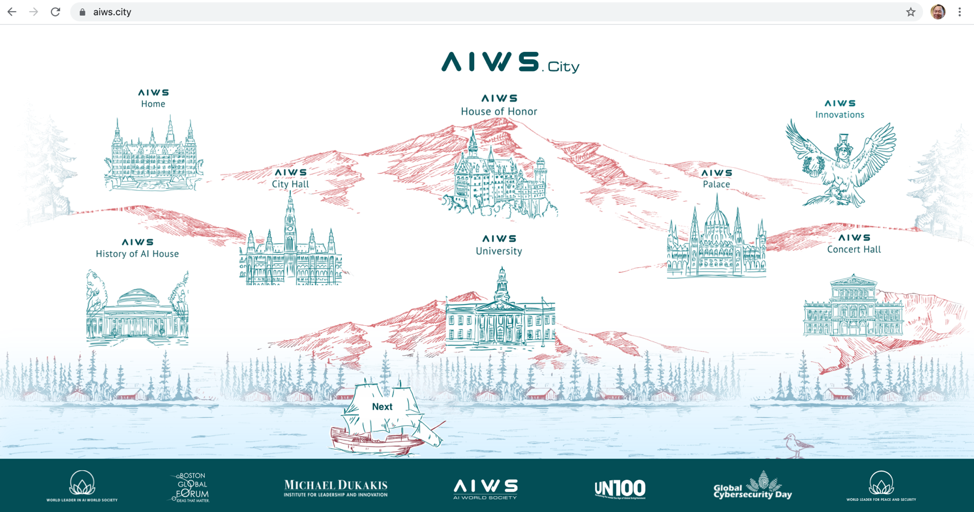
by Editor | Jun 20, 2021 | News
This plan is introduced in the book Remaking the World – The Age of Global Enlightenment:
Implementing the AIWS innovative ecosystem in society:
Based on AIWS innovative value system, building AIWS creative, innovative economic and political ecosystem for every citizen can create AIWS values and help exchange and trade AIWS value in social, include:
– Developing valuing criteria of AIWS creative, innovative contain 12 criteria of innovations.
– Building a AIWS Global Creative – Innovative Exchange Platform
– Building a AIWS Global Enlightenment Education System
– The State builds a strict and transparent legal system to protect creative, innovative values.
– The cultural and psychosocial environment supports and promotes innovation and compassion, tolerance, noble.
AIWS City as a Test Model:
Building AIWS City, a digital and virtual city as an experiment of the AIWS Global Innovation Ecosystem, including:
- AIWS value system: each citizen has an account as a digital house for creativity and exchange and trade their innovations.
- AIWS Global Innovation Exchange.
- AIWS University tests the innovative global citizenship education system AIWS
- AIWS City’s online advantage to create a stimulating environment for creativity and noble life includes theatres, concert auditoriums, museums, palaces, old towns, parks, and stadiums.
- Building innovative communities of AIWS City
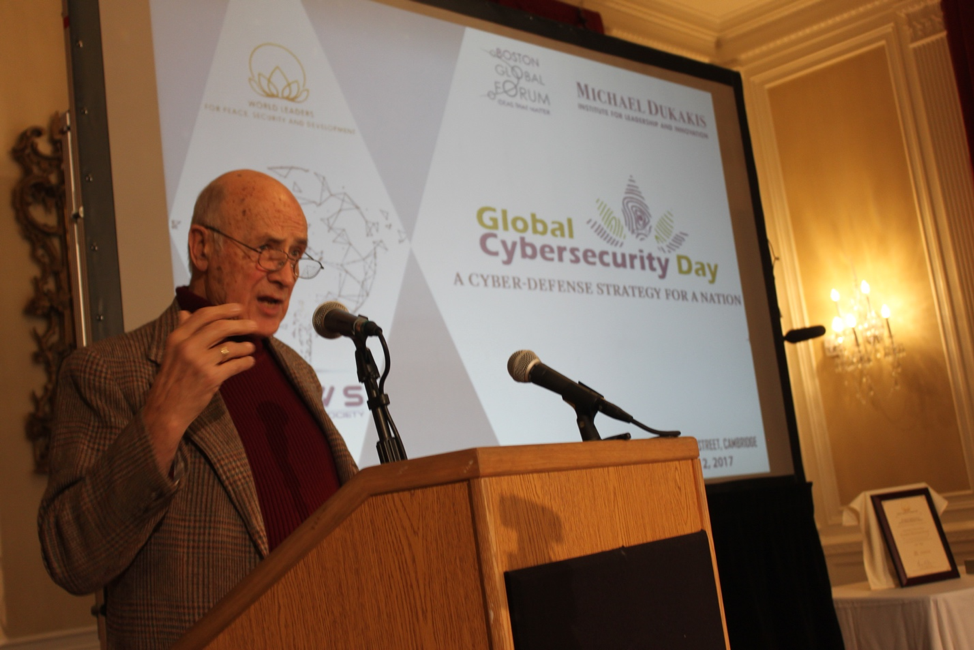
by Editor | Jun 20, 2021 | News
Professor Joseph Nye, Member of BGF Board of Thinkers, contributed his ideas toward the book, below are some of his writings for the book:
“The moral issue is not whether you protect the national interest. It’s whether you define the national interest broadly enough so that what’s good for you is good for others as well. And that’s where I think we have failed in this current crisis.”
“We’re seeing a slight decline in economic globalization. That was already underway, but I think it will be increased by the effects of the pandemic. But the one thing we’re not seeing that many people predicted is the authoritarian model proving to be more powerful than the democratic model.”
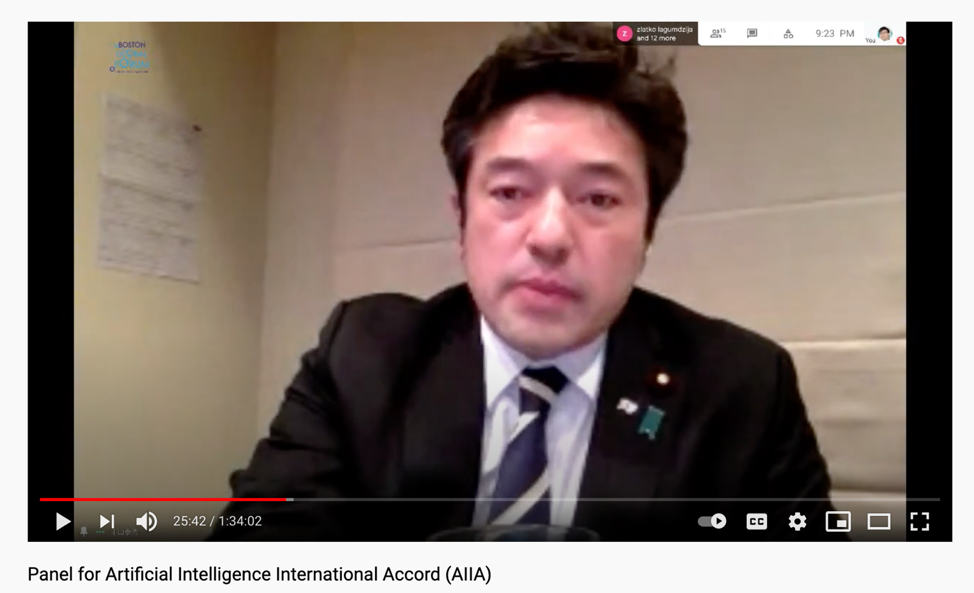
by Editor | Jun 20, 2021 | News
Yasuhide Nakayama, a mentor of AIWS Innovation Network (AIWS.net), contributed toward the book:
“AI has become indispensable technology in various fields including in the manufacturing industry, and the medical, agriculture and the financial sectors, with the development of civilian technology. However, scientific developments can also present new challenges to national security. In many countries, the use of AI has led to the development of new military technologies, such as drone swarms and also renewed information warfare threats such as dissemination of fake news”
“As for AI ethics, the social principle of human-centric AI was developed as a guidance. It stipulates principles-related issues. A social principle of human-centric AI consists of seven principles, including human-centric principles that respect basic human rights guaranteed by domestic laws and international norms, and the principles of ensuring security which addresses security risks associated with elements of AI policy observatory of results obtained from AI operations”
“We believe that evaluations and the judgements on the use of AI will follow Japan’s social principle of human-centric AI and international norms as I mentioned. At that time, we are based on the social principles of human-centric AI. It is also necessary to consider that the systems need functions to detect and avoid unintended consequences and to shut down or suspend systems that have unintended behaviors.
“It’s necessary to have closed communications such as the exchange of information and shared awareness of issues related to the responsible use of AI among like-minded nations and international partners which share these values”
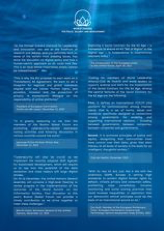
by Editor | Jun 20, 2021 | Event Updates
World leaders contributed content toward the book “Remaking the World – The Age of Global Enlightenment,” below are some of them in the backcover of the book:
“At the Michael Dukakis Institute for Leadership and Innovation, you are at the forefront of research and debate. And you definitely work on some of the world’s most pressing issues. You drive the discussion on digital policy and how a human-centric approach on AI could look like. This is an issue whose importance simply cannot be overestimated.”
“This is why the EU proposes to start work on a Transatlantic AI Agreement. We want to set a blueprint for regional and global standards aligned with our values: Human rights, and pluralism, inclusion and the protection of privacy. A transatlantic dialogue on the responsibility of online platforms!”
President of European Commission Ursula von der Leyen, December 12, 2020
“It is greatly reassuring to me that the members of the Boston Global Forum are promoting cybersecurity-related awareness raising activities and fostering discussions in various countries around the world.”
Japanese Prime Minister Shinzo Abe, December 12, 2015
“Cybersecurity will also be crucial as we implement the recently adopted 2030 Agenda for Sustainable Development, which will require us to tap into the potential of the data revolution and close today’s still-large digital divides.
On 15-16 December, the United Nations General Assembly will convene a High-level Meeting to review progress in the implementation of the outcomes of the World Summit on the Information Society. Your discussion at this year’s Boston Global Forum can provide a timely contribution as we strive together to meet these challenges.”
Ban Ki-moon, Secretary General of the United Nations, December 12, 2015
“Exploring a Social Contract for the AI Age – a framework to ensure an AI “Bill of Rights” in the digital age – is fundamental in international relations today.”
The Ambassador of the European Union to the United States, April 28, 2021
“Calling for members of World Leadership Alliance-Club de Madrid and world leaders to support, endorse and work for the implantation of the Social Contract for the AI Age. Among the central features of the Social Contract for the AI Age are the following:
First, it defines an international TCP/IP (the platform for communication among internet users), that is, a set of norms, values and standards specifically designed as connections among governments for enabling and supporting international relations – including between governments, between companies, between companies and governments.
Second, it is anchored principles of justice and equity, recognizing that communities must have control over their data, given that data literacy at all levels of society is the basis for an intelligent, thoughtful society.”
Club de Madrid, December 2020
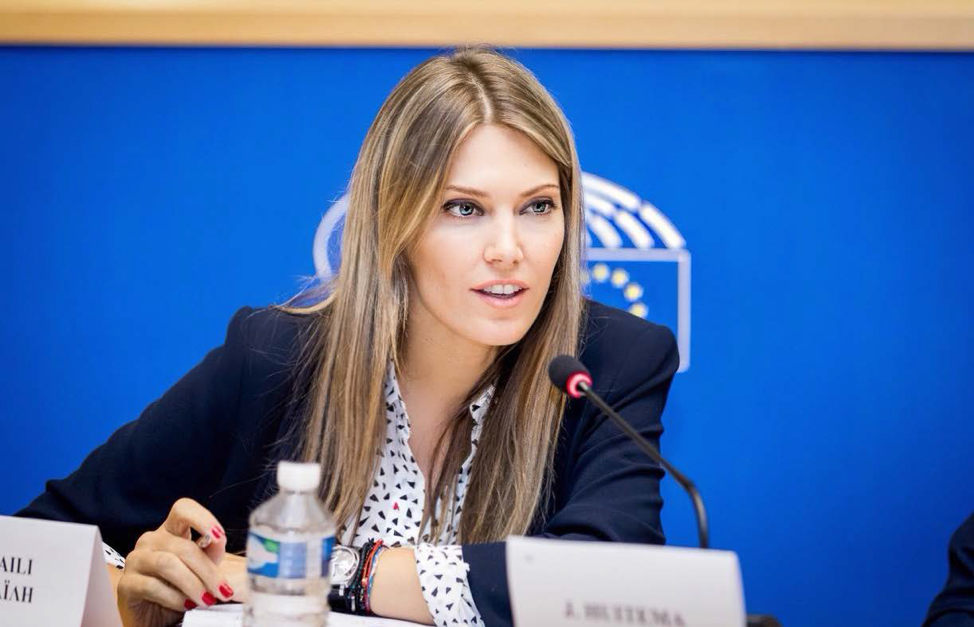
by Editor | Jun 20, 2021 | News
Eva Kaili, MEP and Chair of European Parliament’s Science and Technology Options Assessment body (STOA) and Center for Artificial Intelligence, contributed toward the discussion at the AI International Accord Committee:
The datafication of our societies, via the deployment of AI technologies, is transforming the world as we know it and has the power to challenge and dismantle the fundamentals of our democracy. The ongoing technological change far from being deterministic in its nature and effects, needs to be managed in a proactive and people-centric manner. A new social contract is needed to ensure that any multilateral attempt to shape an AI governance framework is inclusive, trustworthy and will enable the net benefits of digital automation and autonomy to be realized and more widely shared. The European Union as an example of a supranational social contract, can serve as a source of policy inspiration for framing a sustainable, democratic and fair AI. With its new AI Act, just like it did with the ambitious GDPR, Europe is setting high standards to protect digital human rights by default, citizens privacy and consumers safety, prohibiting mass surveillance, intrusive monitoring and social scoring practices that could increase inequalities, in aspiration that our democratic ethical principles could be the basis of an international accord on AI.










